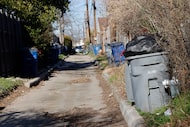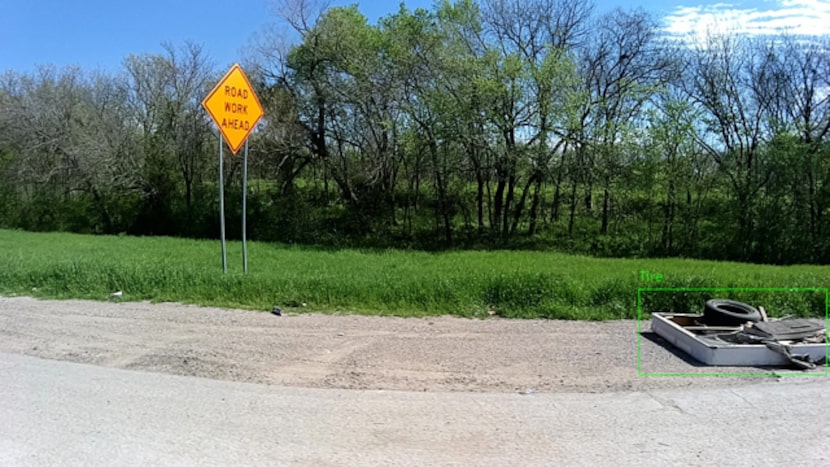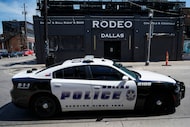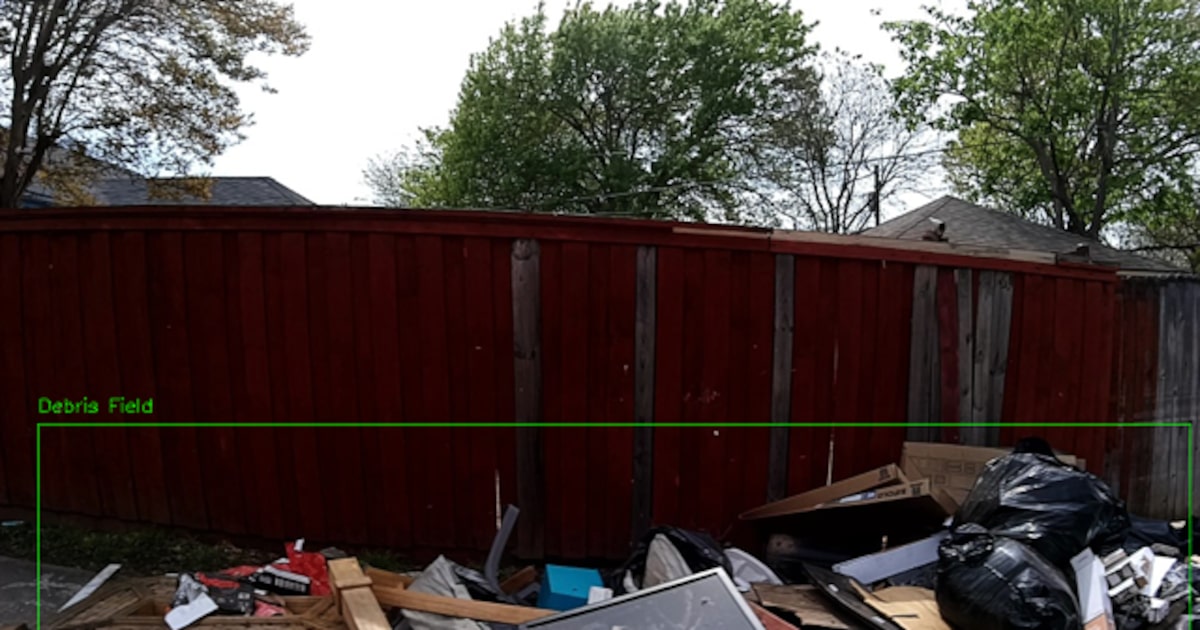Artificial intelligence-powered cameras on Dallas sanitation trucks may hit the streets in 2026.
The City Council approved more than $850,000 to install cameras on the trucks in partnership with the Code Compliance Department. The cameras will capture thousands of images and locations of code violations like illegal dumping, high weeds and graffiti.
Related

Cities across the country are increasingly utilizing AI for similar services, despite residents’ concerns about surveillance and data storage, leading to pushback. But experts say the technology can be an efficient tool for cities if it’s used responsibly and those in charge communicate with residents on how it works.
Breaking News
“This technology is good, can be good, but it comes with a whole new set of risks and challenges that people need to consider,” said Anton Dahbura, co-director of the Johns Hopkins Institute for Assured Autonomy. “They also can’t always rely on vendors to tell them all of the things they need to consider. It’s really incumbent on the city to make sure that these risks and challenges are addressed.”
The city of Huntsville, Ala., discussed implementing a similar program, but removed the item from its agenda after residents raised concerns about surveillance and data storage, according to local outlets. Cities that have implemented these cameras include Prescott Valley, Ariz., and Stockton, Calif.
Pilot program
Christopher Christian, Dallas’ code compliance director, said his team learned about the technology in 2023, and the following year the department rolled out a pilot program.
Currently, most code violations are reported by residents. By automating the detection of violations, the cameras will free up code officers to focus on education, outreach and more complex cases rather than spending time driving around or responding to every 311 call, said Christian.
During the pilot, cameras were installed by City Detect, an Alabama-based company, on code compliance vehicles, which were driven around the city for a couple of days.

During the pilot in 2024, cameras were installed in Dallas Code Compliance vehicles by City Detect, an Alabama-based company, on code compliance vehicles that were driven around the city for a couple of days.
Courtesy
They identified roughly 3,000 code violations throughout the city, Christian said. The cameras took still photos, and data were collected to be later filtered by violation type.
“We were able to look at specific case violation types and ‘heat maps’ for the entire city. The area of town where violations were more prevalent was glowing in red. Cautionary areas were glowing in yellow. Good areas were glowing green,” Christian said. “And so we just saw a tremendous benefit to utilizing this technology and this software to streamline our processes that optimize our resources.”
Christian said access to the data will be limited to licensed city staff, and all data storage and security protocols will adhere to city standards.
Dahbura said residents have the right to be concerned about the use of AI, given previous cases where government agencies have misused facial recognition and other tools.
He said the city has a responsibility to communicate with residents when, where and how these cameras will be used. Cities should have a kind of “checklist” to ensure they are covering their bases when using AI.
Related

Gavin Blake, CEO of City Detect, told The Dallas Morning News the system captures still images and focuses on community enhancement rather than surveillance.
He said the data is stored securely in the United States and owned by the municipalities.
“We really try to be the good AI. We’re not focused on people. We can blur faces. We can blur or obscure license plates because we are not focused on people or the movement of people at all,” Blake said. “This is not a police-like tool; this is a community enhancement beautification tool.”
AI-powered cameras in Dallas
Based on pilot and vendor feedback, the city decided that mounting cameras on sanitation trucks, which have consistent routes and are responsible for collecting brush and bulk items, would provide a more comprehensive and uniform snapshot of the city than code compliance vehicles.
Two cameras will be installed on 50 of the brush and bulk sanitation trucks.
All the photos will be taken in public spaces. The cameras won’t be able to take photos above fences and will be positioned at street level, said Christian.
Once a violation is detected, the system will notify the code officer, who will then visit the location to inspect the site and speak with residents.
Christian said a human will always be in the loop. This approach is expected to enhance efficiency, reduce costs and benefit residents by facilitating the more effective deployment of resources, he said.
For the sanitation department, the cameras will help track participation in brush and bulky item collection, identify types of materials set out and support future waste diversion and recycling initiatives, said Clifton Gillespie, director of the sanitation department.
“The data that we will be able to receive to identify where people are placing brush and bulky items out, and when, … will help us to be more strategic on our deployment of equipment,” Gillespie said, “which hopefully we see as resulting in additional savings to our customers.”
Community input
The project is not yet finalized. Although funding has been approved, the City Council still must approve the contract.
Residents will have the opportunity to express their opinion regarding the cameras when the item is on the council agenda. Christian expects the item to be presented to the council late this year or in early 2026.
If approved, hardware installation is expected to take approximately 60 days, with full deployment anticipated in early to mid-2026, according to Christian.
Community outreach is a priority, he said.
The city plans to conduct a mass education campaign through community meetings, social media and press releases to inform residents about the technology, its benefits and privacy safeguards.
“For us, it’s not an enforcement focus; it’s a voluntary compliance focus. So we want to be able to allow [residents] to understand that they potentially have a violation that needs to be addressed,” Christian said. “What their options are for addressing that violation, and let them know the city also has resources to help them.”

